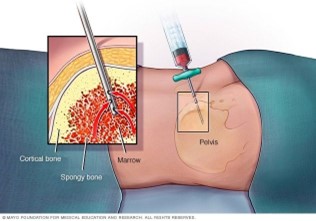While awaiting the biopsy report, the client reports being afraid of a diagnosis of cancer. How should the nurse respond?
“Worrying is not going to help the situation."
“Let’s wait until we hear what the biopsy report says."
“It a very upsetting to have to wait for a biopsy report.”
“Operations are not performed unless there are no other options.”
The Correct Answer is C
The client is experiencing fear and anxiety while awaiting the biopsy report, which is a common reaction.

Response a, “Worrying is not going to help the situation," may come across as dismissive or insensitive, and may make the client feel like their emotions are not valid.
Response b, “Let’s wait until we hear what the biopsy report says," may be appropriate in some situations, but it does not acknowledge the client's emotions or offer any support.
Response d, “Operations are not performed unless there are no other options,” is not a relevant response to the client's fear of a cancer diagnosis.
The most appropriate response, option c, acknowledges the client's feelings and offers support, which can help the client feel heard and validated. The nurse can also offer additional support by providing information on coping mechanisms or resources available to the client to help them manage their anxiety while they wait for the results.
Nursing Test Bank
Naxlex Comprehensive Predictor Exams
Related Questions
Correct Answer is B
Explanation
You should try to see your partner's point of view before your own**. This statement by the newly licensed nurse requires intervention by the experienced nurse because it is not therapeutic and does not demonstrate empathy or active listening. Instead of offering advice or telling the client what to do, the nurse should focus on understanding the client's concerns and feelings and helping them explore their options.
Correct Answer is D
Explanation
The ethical principle of justice governs this situation. Justice refers to the fair and equal treatment of all individuals. In this case, the nurse is concerned about whether staff are behaving ethically by using different approaches to prevent self-mutilation in two different clients. The principle of justice would require that both clients receive fair and equal treatment based on their individual needs and circumstances.
Whether you are a student looking to ace your exams or a practicing nurse seeking to enhance your expertise , our nursing education contents will empower you with the confidence and competence to make a difference in the lives of patients and become a respected leader in the healthcare field.
Visit Naxlex, invest in your future and unlock endless possibilities with our unparalleled nursing education contents today
Report Wrong Answer on the Current Question
Do you disagree with the answer? If yes, what is your expected answer? Explain.
Kindly be descriptive with the issue you are facing.
